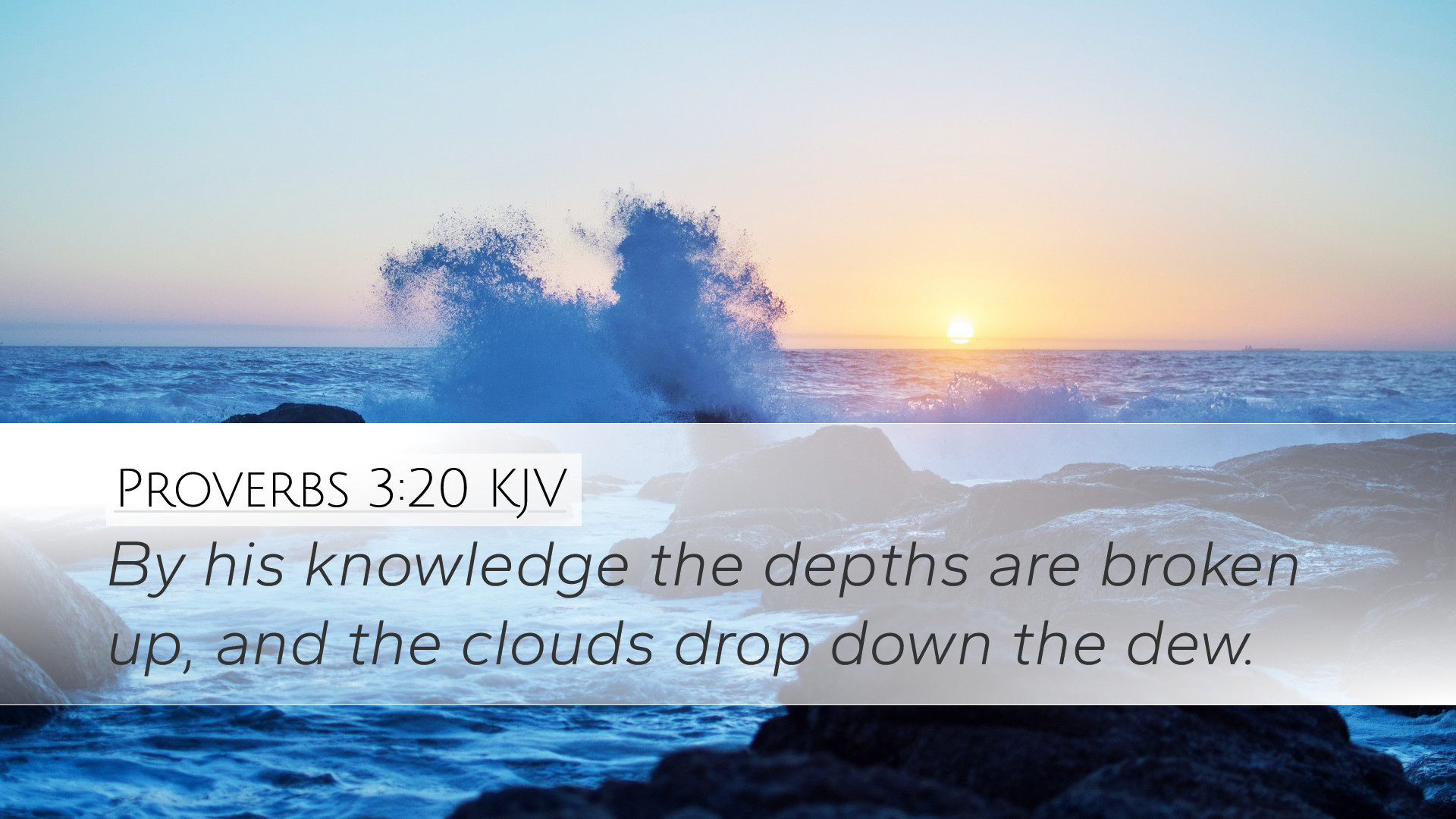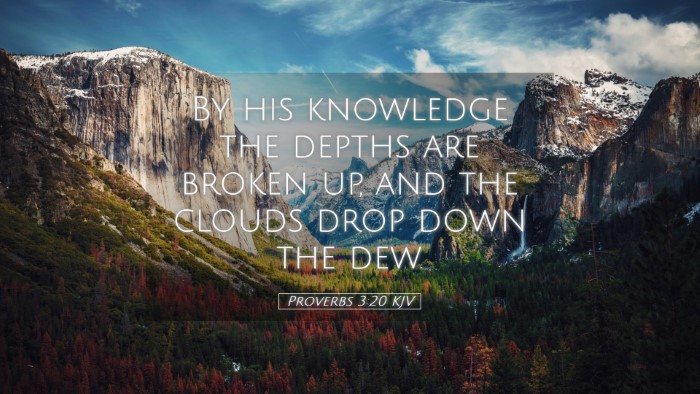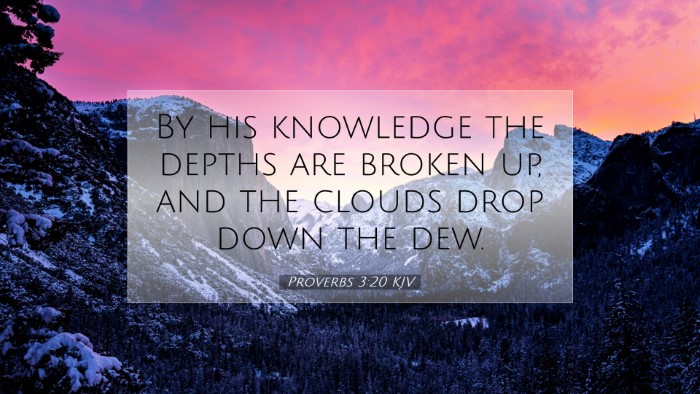Commentary on Proverbs 3:20
Verse: Proverbs 3:20 - "By His knowledge the depths are broken up, and the clouds drop down the dew."
Introduction
The verse in focus offers profound insights into the wisdom of God as it relates to creation and the sustaining of the world. Both the parallels of physical phenomena and spiritual truths are significant in understanding the depth of this scripture. Insight from public domain commentaries such as those by Matthew Henry, Albert Barnes, and Adam Clarke will be synthesized to provide a comprehensive understanding suitable for pastors, students, theologians, and Bible scholars.
Understanding the Text
This verse highlights two primary elements: God's knowledge and the resulting effects in creation—specifically, the breaking of depths (seas or subterranean waters) and the falling of dew from the clouds. Each aspect reveals attributes of God's omniscience and omnipotence.
Insights from Commentaries
Matthew Henry
Henry emphasizes the power of God’s knowledge in creation. He explains that “the depths are broken up” refers to God’s authority over creation—He not only created the world but governs it with wisdom. The breaking of depths can be viewed as a metaphor for revelation and understanding. Understanding God’s ways enables believers to navigate life’s complexities, much like the waters that God parts to provide access.
Albert Barnes
Barnes focuses on the connection between natural phenomena and divine wisdom. He argues that just as God brings forth dew from clouds and breaks open the depths, He also provides spiritual nourishment through His wisdom. The dew, which brings refreshment to the earth, symbolizes the blessings that flow from God’s knowledge, highlighting the sustenance provided to the believer's spirit.
Adam Clarke
Clarke elaborates on the phrase “the depths are broken up” as reflecting God’s sovereign control over the cosmos. He asserts that the phrase suggests a divine intervention in nature, indicative of God’s creative and sustaining power. Clarke also notes that the “clouds drop down the dew” symbolizes God’s continual care for His creation, providing for its needs through the delicate balance of nature.
Theological Implications
This verse implies a profound trust in God’s character and abilities. The imagery used conveys that God is intimately involved in both the workings of nature and the lives of individuals. This duality encourages believers to recognize His provision and care. The breaking of the depths can symbolize spiritual barriers being removed by the wisdom God imparts. The resultant dew represents renewal and sustenance in the lives of believers.
Practical Applications
- Trust in Divine Wisdom: In a world full of uncertainty, believers are encouraged to trust in God’s knowledge and wisdom in all circumstances of life.
- Recognizing God's Provision: Just as dew nourishes the earth, recognizing daily blessings can enhance spiritual awareness and gratitude.
- Seeking Knowledge: The verse invites believers to pursue knowledge, both of God and His creation, as a way to understand the divine order and operate within it.
- Encouragement in Trials: Knowing that the God who controls nature is in control of their lives gives believers hope during challenges.
Conclusion
Proverbs 3:20 serves as a reassurance of God's sovereignty and benevolence in the created order. The insights from Matthew Henry, Albert Barnes, and Adam Clarke create a rich tapestry of understanding that inspires deeper contemplation and acknowledgment of God's active role in both nature and personal life. As scholars and practitioners of faith, reflecting on this wisdom can lead to a more profound relationship with God, fostering trust, gratitude, and a desire for deeper spiritual insight.


